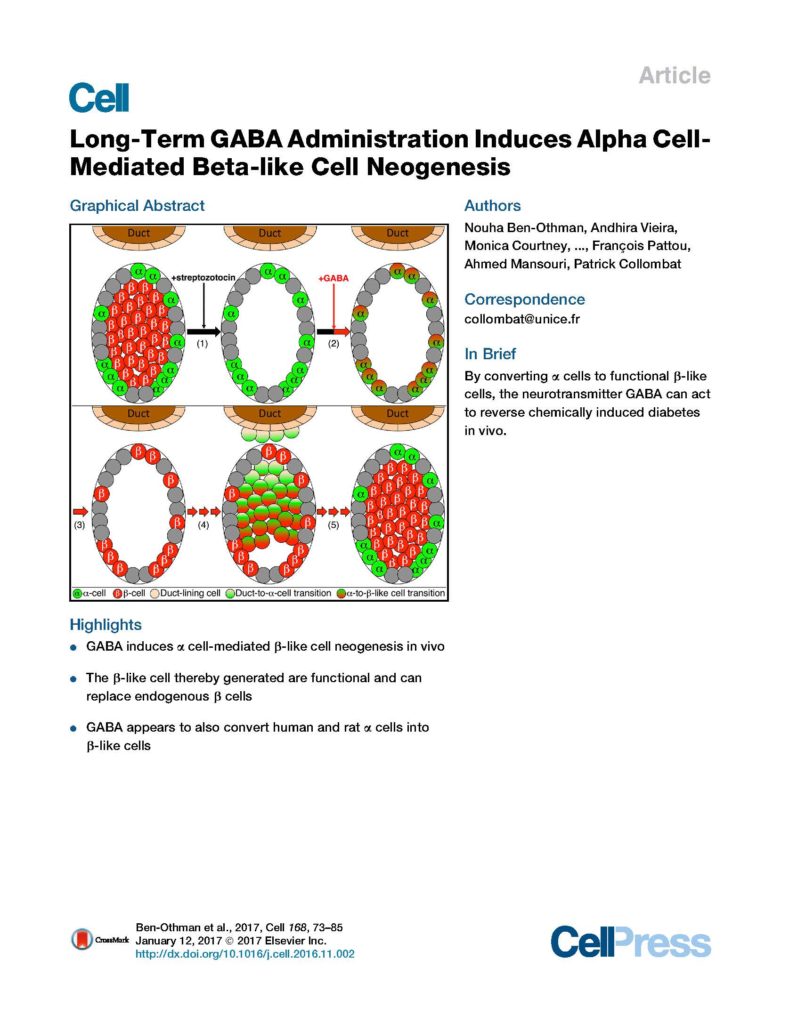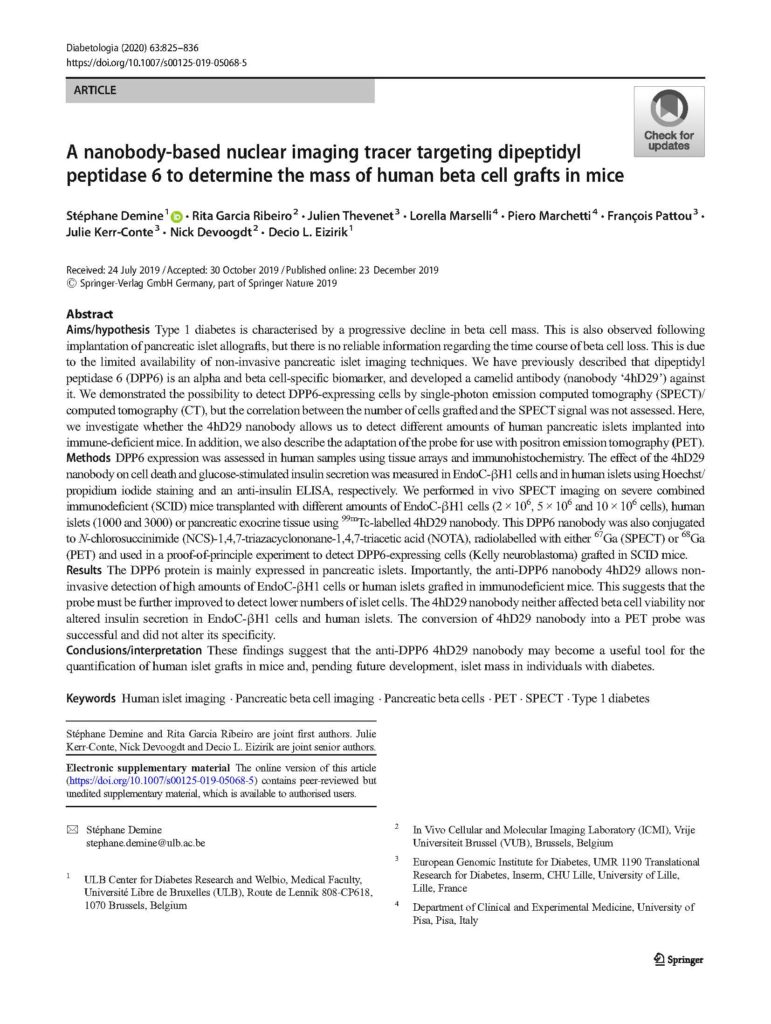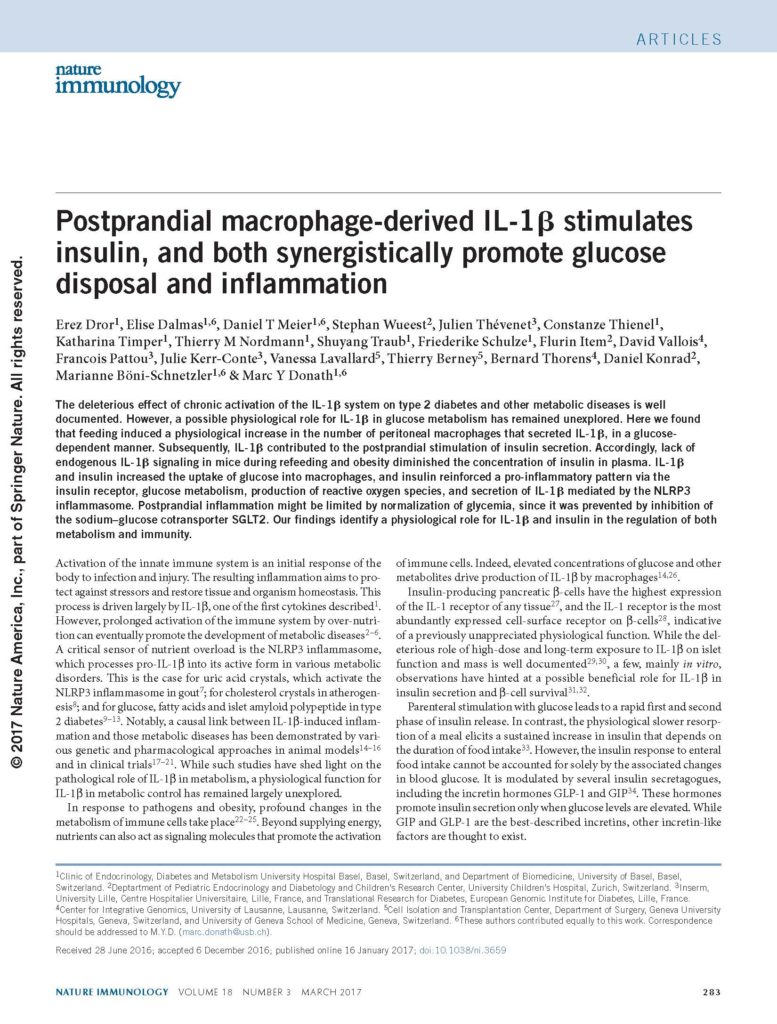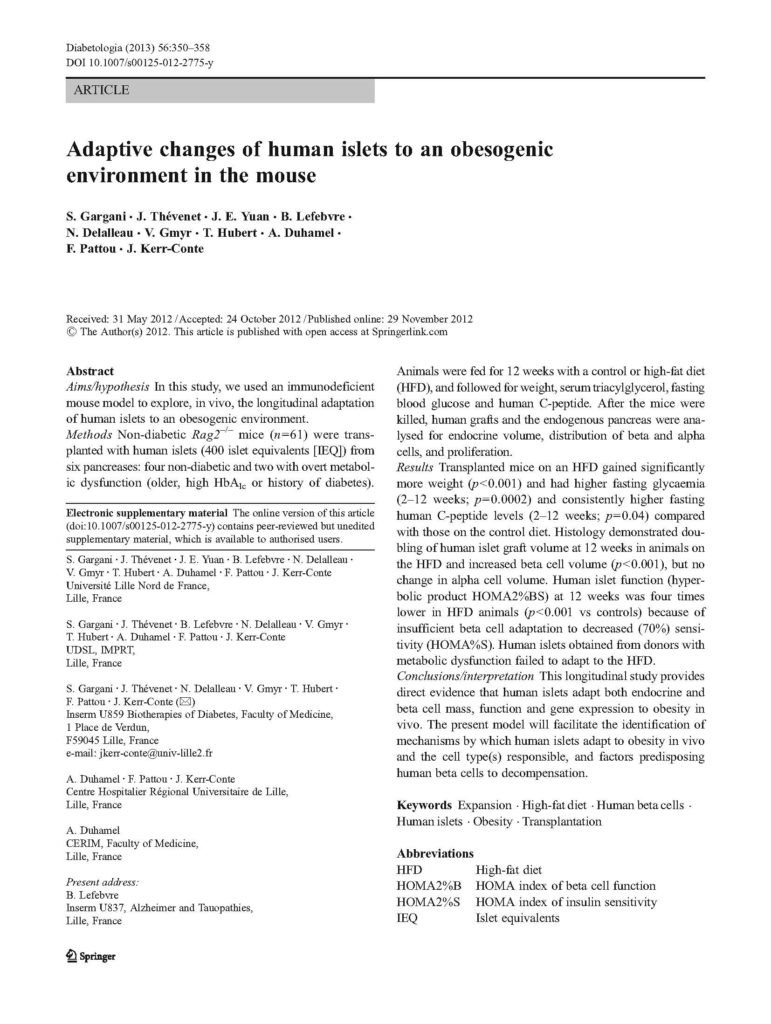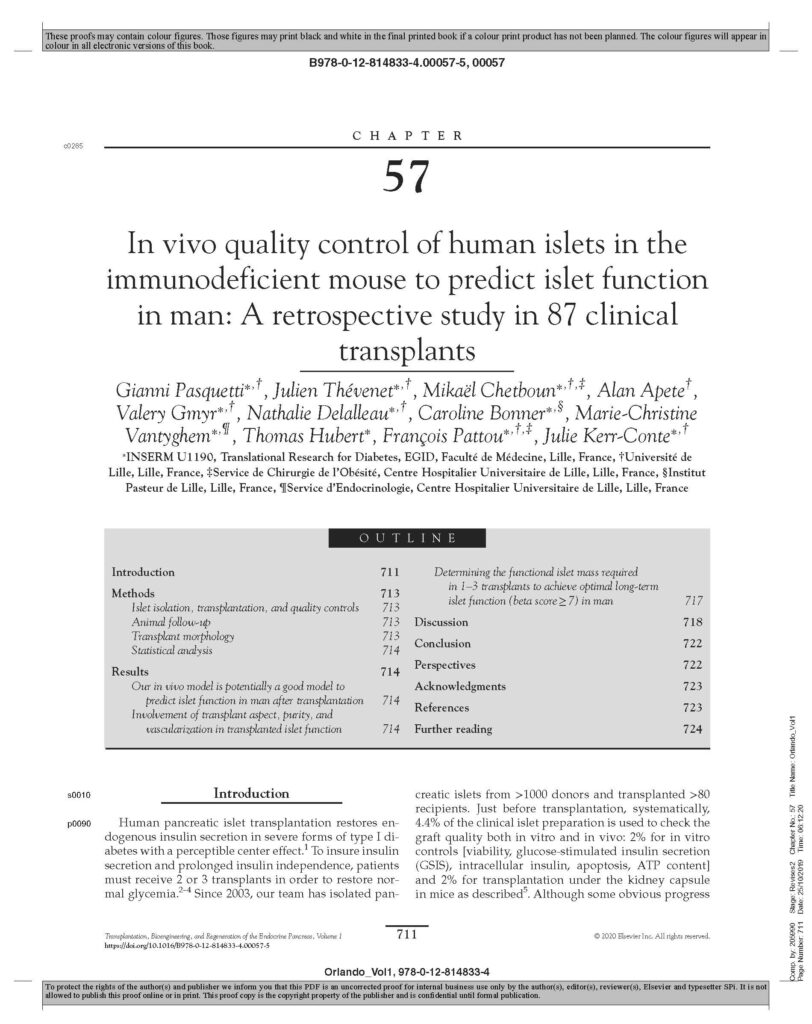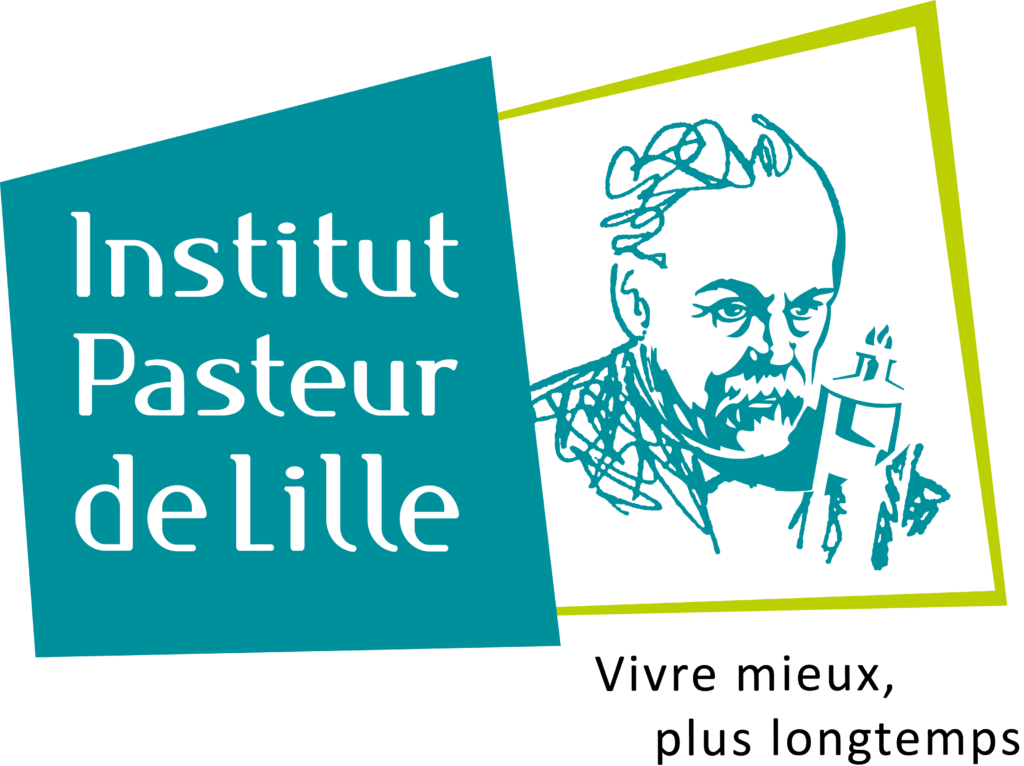Human Islet Transplantation in Immunodeficient Mice
With its ability to isolate human islets, our laboratory has been a leader in the development of a robust and reproducible in-vivo model, the QIVIPA (quantitative in vivo islet potency assay) model, consisting in transplanting purified human islets under the kidney capsule of normoglycemic immunodeficient mice.
In this model, 1% of the final islet preparation to be grafted to type 1 diabetic patients is transplanted into mice in order to study the functionality of the islets over longer term and to predict graft potency in patients. It is based on the measurement of the fasting glycemia and human C-peptide levels in the tail blood of immunodeficient grafted mice.
Isolated human islets from donors are grafted into type 1 diabetic patients and in paralled under the kidney capsule of immunodeficient mice.

